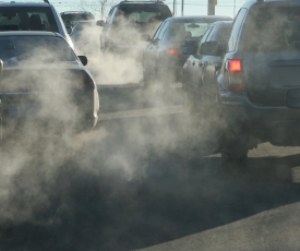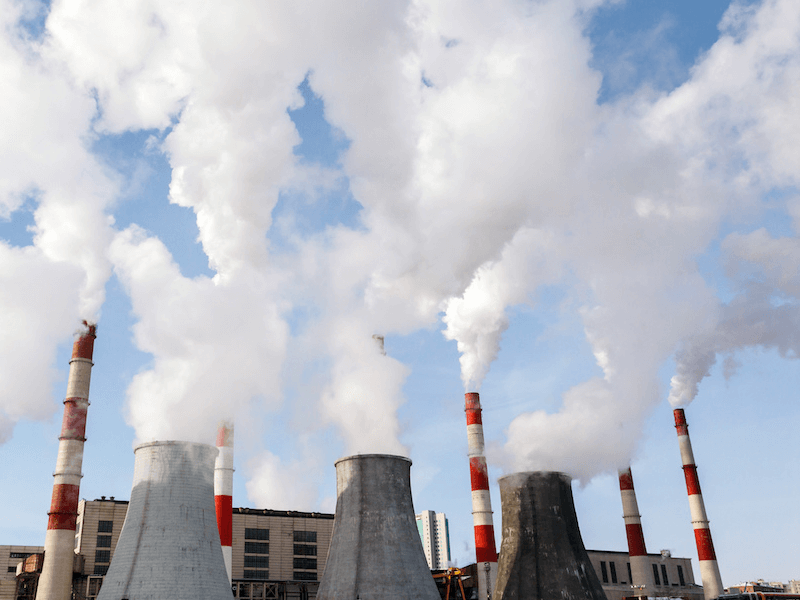The environment which surrounds us is the natural heritage that nourishes life. It gives us air to breathe, water to quench our thirst and food to satisfy our hunger. A healthy natural environment plays a massive role in sustaining lives of many organisms. However, due to the harmful consequences of anthropogenic activities the environment is in immediate need of protection. Thus, conserving the environment today is of utmost timely importance!
The United Nations Environment Programme (UNEP) annually organizes The World Environment Day to raise awareness and to urge the global community to make an initiative in order to safeguard the environment. It gives an opportunity to enlighten and broaden our insight on the timely importance of conserving the environment.
The history of The World Environment Day runs back to 1972, when it was first established by the United Nations General Assembly to enhance and improve the interaction between humans and the environment. The World Environment Day 2019 is globally hosted by China on the theme “Beat Air Pollution”. This year’s theme urges the governments, industries, communities and individuals to accept the dire consequences of air pollution and to encourage them to utilize renewable and green energy sources as well as efficient technologies to improve quality of air.
Air pollution occurs when harmful substances like gases, particulate matter, biological molecules and etc. are introduced to the atmosphere in excessive quantities. These substances intervene in normal atmospheric processes thus deteriorating the quality of air and causing adverse effects on the lives of every living organism.
According to health reports issued by the World Health Organization (WHO), 92% of people breathe polluted air and 7 million people die annually due to implications of polluted air such as Chronic Obstructive Pulmonary Disease (COPD), lung cancers, skin cancers, asthma and cardiovascular diseases. The reports also point out that there are 5 sources of anthropogenic activities that pollute the air we breathe in as they release a vast range of polluting substances like Carbon Monoxide, Carbon Dioxide, Nitrogen Dioxide, Nitrogen Oxide, Sulfur Dioxide, ground level Ozone, particulate matter, hydrocarbons and etc.
The leading cause for air pollution in many countries is the industrial emissions released mainly from coal burning power plants, diesel generators, chemical industries and mining industries. As at 2019, the leading global air pollutant is China (30%) while USA (15%) is in the 2nd place and India (7%) in the 3rd place. These countries are highly populated and industrialized, that they release vast quantities of industrial emissions such as Carbon Monoxide, Carbon Dioxide, Nitrogen Dioxide, Nitrogen Oxide, Sulfur Dioxide, particulate matter and etc. In order to reduce the industrial emissions, coal and other sources of fossil fuel have to be replaced by green energy sources like solar energy, wind energy, geothermal energy, tidal energy, bio gas, liquid bio fuel and Hydrogen gas. Further, measures have to be taken to enhance cleaner production, energy efficiency and pollution control.
Another anthropogenic cause to pollute the air is transportation. The global transportation accounts for about one quarter of energy related emissions. Almost 400,000 premature deaths are linked to transport emissions, half of which are due to diesel emissions. Recent studies have pointed out that those who live in highly traffic congested areas are 12% more prone to be diagnosed with Dementia. To reduce the emission through transport, the use of private vehicles has to be minimized as much as possible. Instead, means of transport like walking, cycling and the use of public transport have to be promoted. Further, vehicles must use clean forms of fuel like liquid bio fuel and advanced vehicle emission standards.

According to the reports of the WHO, 24% of the Green House Gases are emitted from agriculture, forestry and other land uses. The agriculture sector contributes to pollute the air by livestock that releases Methane and Ammonia and also by burning agricultural waste which releases Carbon Dioxide and Carbon Monoxide. Methane has a very high global warming potential about 34 times greater over a 100 year period. It contributes to ground layer Ozone formation which causes asthma and other respiratory diseases. Emissions from the agricultural sector can be minimized by adapting to plant based diets, by reducing food wastage, optimizing food digestibility and managing grasslands in order to reduce the Methane emission.
Open burning of waste and organic matter in landfills release many harmful dioxins, Methane and black Carbon in to the atmosphere. This practice of open waste burning is conducted in 166 out of 193 countries which give a clear depiction of how serious the problem is. Improving methods of collecting, separating and disposing of solid waste reduces the amount of solid waste that is land filled or burned. Further, organic waste can be turned into compost or bio energy so as to reduce the amount of solid waste that is land filled or burned.
Households also contribute to pollute the air by burning of fossil fuel, wood and other bio mass based fuel for cooking, heating and lighting purposes. This practice is higher in developing countries and about 3.8 million premature deaths are caused annually due to indoor air pollution. The domestic use of energy efficient stoves and green sources of energy like bio gas can reduce the emission of air pollutants from households.
Considering the global statistics on the adverse consequences of air pollution, it is quite evident that immediate actions should be implemented worldwide to improve the quality of air that we breathe in. Policies and programmes that aim to minimize the emission of air pollutants have to be implemented and enforced in every country. Certain developed countries such as Germany, Denmark, Sweden and Scotland have already implemented exemplary green strategies to reduce the emission of air pollutants to the atmosphere. Thus, the developing countries should also follow the lead set by the developed countries. If these strategies are not implemented on immediate effect, certain countries with poor air quality might have to depend on other countries for their supply of clean air, just like China depends on Canada and Australia.

Every organism has the right to breathe clean air. How polluted the air is, we cannot stop breathing since it is a fundamental necessity to sustain life. Thus, the only measure that can be done is to take necessary actions and improve the quality of air that we breathe in. Let us keep in mind that air pollution is an incurable disease. It can only be prevented. This has to be done with the united efforts of the global community as air pollution in one country could have detrimental effects on the air quality of another country. Hence, let us be responsible for every single breath to breathe clean!
References :
Image Courtesy :
- Title image : https://www.nepalitimes.com/wp-content/uploads/2019/05/page-2b.jpg
- Content image 1 : https://www.peakoil.net/wp-content/uploads/2017/05/air-pollution.png
- Content image 2 : https://bit.ly/2Xv0nFw
- Content image 3: https://bit.ly/2Wqhlbi


